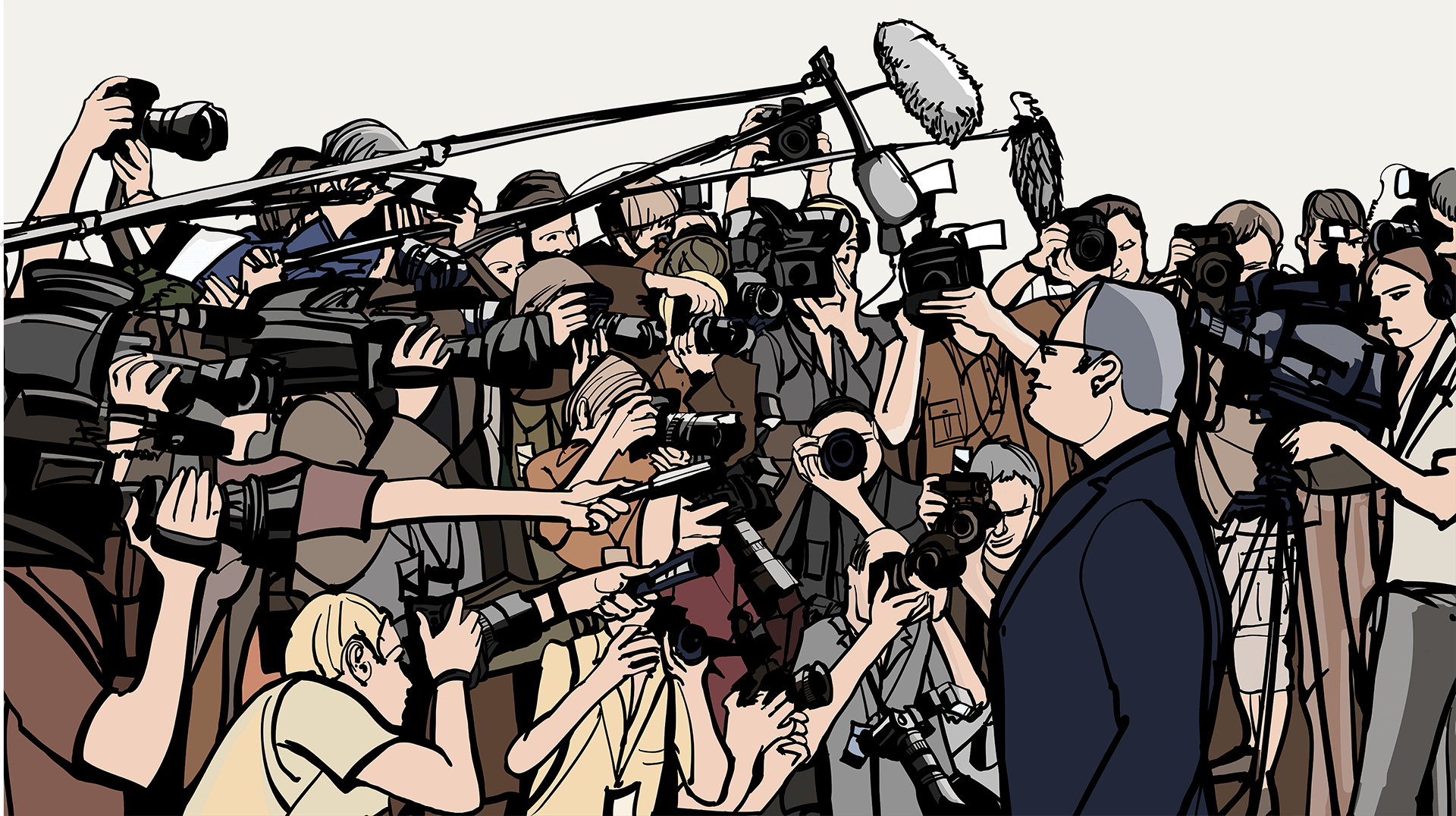Over the past decade, liberal democratic societies have witnessed an illiberal, undemocratic phenomenon that increasingly has permeated public discourse. This refers to intimidation of those holding contrary opinions on political, ideological, social, academic and other weighty topics. The ferocity of mob outrage vented on social media – so-called ‘trolling’ – is a high-profile example, but there are other examples of intolerant ‘wilding’. This article explores the general phenomenon and those perpetrating such aggressive tactics, as well as considering the current trajectory of academic, political, and public debate in a polarized climate, one increasingly dominated by stridently expressed extreme opinions.
A Descent into the ‘Win At All Costs’ Dark Side
Well before the 21st century, a steady-state tradition had built up in democracies whereby freedom of speech was often passionate, but nevertheless generally respectful, even when opponents evoked vehement disagreement. Such popular periodicals as Private Eye, Le Canard Enchainé and Charlie Hebdo continue the tradition of satirically speaking truth to power, as do many newspapers, while academics continue to expound their theories and opinions in a variety of academic channels, and sometimes in the popular press. While often controversial, vigorous, and even barbed – and whether impartial or partisan, measured or polemical – the essence of this tradition has been the principle of engaging, debating, analyzing, weighing, informing, and coexisting. This is all in the public interest, so as to develop and promulgate the most powerful arguments rather than the arguments of the most powerful.
This social contract of normative behavior started to break down noticeably towards the end of the first decade of this century, coinciding with the rise of social media. It has degenerated to such an extent that by now this civil standard is regarded by a significant minority as a contemptible relic that must be abandoned. Increasingly, respect for opposing world-views and opinions has been jettisoned in favor of a shrill determination to crush anyone whose ideas challenge one’s own preconceptions.
The arguments of the most overbearing and ‘shouty’ now swamp the most powerful arguments with their disproportionate noise and impact. In essence, it is a bullying and bellicose ‘win at all costs’ approach, which might have been taken out of an imaginary ‘Megalomanic Dictator’s Guide to Advancement and Self-Preservation’. According to Ukrainian academic, Anton Shekhovtsov, the claim that Putin is a real – and arguably fascist – dictator is a case in point. Individuals and groups at all levels in society may display remarkably similar characteristics to Putin’s ruthless determination to dominate others with little or no concern about the resulting harm. As Ignazio Silone’s 1930s semi-autobiographies Fontamara and The Seed Beneath the Snow chronicling survival in a fascist society reveal, ‘fascism’ – both in the popular sense of overbearing nastiness and as a political ideology – is characterized in daily life by such mundane personality flaws as envy, greed, vanity, resentment, inadequacy, entitlement, sociopathy, criminality etc.
The following cases exemplify the new intolerance, including the much abused ‘weaponisation’ of the terms ‘fascist’ and ‘anti-fascist’ by countervailing interests.
Case A: Extreme Commentators and Agitators
The extreme statements by Donald Trump during his 2016-2020 US presidency are infamous. Trump was an avid user of his Twitter social media account and had few qualms about issuing personal rants in undiplomatic – and certainly un-presidential – language against a wide range of individuals and groups that he decried. These included senior US politicians, government officials, judges, war heroes, foreign politicians and heads of state, as well as journalists, film stars, sportspersons, and celebrities, but also Mexicans, Muslims, Iranians, disabled persons, refugees and many other objects of his disdain.
In Trump’s narcissistic world-view, there is a dichotomy between winners/predators like himself and losers/victims who deserve all their problems and suffering and who, moreover, may be dismissed as unpatriotic, “socialist” (i.e. crypto-communist) agitators. To him, a loser is anyone lacking his personality and world-view or daring to challenge or criticize his ideas or policies, even constructively. Such Trumpian abuses have been widely discussed, for example by Roger Paxman, Kevern Verney, and Alan Waring in The New Authoritarianism Vol 1 and Denis Fischbacher-Smith, Clive Smallman, Antony Vass, and Alan Waring in Vol 3. As Smallman noted, such “toxic leadership is not ‘luck of the draw’”.
Trump’s combative style has helped to polarize political debate in the US and encourage partisan non-cooperation between the Republican (GOP) and Democratic parties. This has continued into the subsequent Biden administration. Moreover, Trump’s attitude and conduct (most notoriously his ‘dog-whistle’ priming of a radical-right mob to attack the Capitol Building on January 6, 2021) gave a further green light to an expanding group of radical-right GOP Congress members.
A growing caucus of such GOP politicians– including Andy Biggs, Lauren Boebert, Ted Cruz, Matt Gaetz, Paul Gosar, Ron Johnson, Ron Paul, and Marjorie Taylor-Greene –has done so, to the extent that the GOP is no longer seen as a ‘one-nation’ conservative party. Instead, it has become a populist radical-right (and potentially far-right) party in which mainstream Republican politicians are increasingly intimidated and marginalized by their more outspokenly extreme colleagues. The cases of Kinzinger and Cheney are especially instructive here.
Trump (an outspoken fan of Putin and his aggressive nationalism, with a notable ambivalence towards his Ukraine invasion) and his GOP allies have been joined in their intolerant statements by a bandwagon of like-minded fringe political commentators and agitators. They have been adept at using their media spaces to vilify naysayers and stridently promulgate radical-right opinions – even extreme ones – as well as absurd conspiracy theories (such as QAnon). Among these are Ann Coulter, Alex Jones and, at Fox News, Tucker Carlson and Laura Ingraham.
Until recently, the gigantic and belligerent radical-right megaphone system in the US has not been mirrored by anything similar on the radical left.
Case B: Cancel Culture in Higher Education
In recent years, there has been a trend for some university students to demand that their lecturers must not include any content that these students may find objectionable, and that university authorities should ban lecturers or speakers whose intellectual views they may not like . Students taking part in such ‘cancel culture’ have become known derisively as ‘snowflakes’. In some instances, protests have turned violent.
Student cancel culture runs counter to the primary purpose of university education, which traditionally aimed at developing constructively critical analysis rather than prejudicial rejection. Indeed, experiencing intellectual challenge and discomfort is a necessary part of university education as a means of developing understanding and sharpening evaluative skills.
In considering how to shape academic freedom, especially in the digital age, we have seen undue pressure applied to individual academics who have published opinion pieces causing offense to some readers. Noting that an opinion is typically a subjective and biased view of an issue –even when given by an acknowledged expert, since no one’s world-view is value-free or experience-free– researcher Jaime da Silva warned: “Pressure-induced retractions of opinions not only stifle academic debate, they also send the message that opinions need to be moderated and standardized to meet a publishing market that is being increasingly driven by legal parameters, political correctness, as well as business and commercial values rather than academic ones.” Yangyang Cheng writing for The Atlantic also highlights concomitant business, commercial and, occasionally, political pressures. Da Silva continued, noting that “the way things are said, tone, and the sensitivity of those that might be affected are given greater weight than the message itself. By cherry-picking parts of the message that detractors or critics might disagree with, the original message may be drowned out by the noise of the objectors.” The requirement for universities to show proper integrity and firmness against such pressures has never been more urgent.
Case C: Counter-Extremist ‘Cancelled’ for Not Being Anti-Fascist Enough
A stout rejection of fascism could be assumed to be a sine qua non for any member of a body comprising doctoral and post-doctoral fellows dedicated to the analysis of the radical right and countering any associated extremism. Indeed, one such body that for years had been proud of such credentials was what I shall call the Right-Wing Authoritarianism Research Group (hereafter RWARG), a pseudonym used here to save any possible embarrassment. All members were required to contribute non-peer reviewed opinion pieces regularly to the RWARG’s flagship online blog. One such member, Dr. Smith (another pseudonym), had been doing so for some years without controversy when unexpectedly his latest article received a blitz of vituperative reaction online from some fellow members.
Their ire had been provoked, it seems, by his observation that whereas most attention was deservedly focused on the radical right, and the latter’s propensity for the use of threats and even violence to achieve their aims, some radical-left supporters were also now advocating similar tactics against the far right. Although he referenced some specific US examples of violent actions, and articles implying, if not specifically advocating, violence from so-called ‘Antifa’ groups, the RWARG’s online blog editorial policy did not require opinion-piece authors to meet the standards of a double-blind peer reviewed academic paper in order to justify every statement. After all, as da Silva observed, an expressed opinion is typically “a subjective and biased view of an issue”, and blog articles are intended to provoke thought rather than necessarily to inform impartially or, indeed, comprehensively. Moreover, this example validates da Silva’s observation that “the sensitivity of those that might be affected [is] given greater weight than the message itself.”
The thrust of Dr. Smith’s piece was thus to challenge the notion that it is ever acceptable to use or advocate violence as a political policy, strategy or tactic, and cited the well-worn heuristic that ‘violence begets violence’. He was debunking the sophistry that it is morally acceptable for anti-fascists (of any hue) to resort to violent tactics, whether reactive or pre-emptive, against radical-right extremists simply because the latter may have a violent predisposition.
The hysterical reaction to Dr. Smith’s piece was orchestrated by a cabal of members and like-minded academics who went on the offensive first by circulating a strident denunciation of the author,signed by over twenty individuals and demanding a radical reorganization “to prevent far-right members from joining and subverting the organization”. After each signatory’s name, the designation “anti-fascist” was added, presumably for the avoidance of doubt.
The cabal then hastily organized an online fellows’ conference in order to discuss Dr. Smith and his article, as well as to present demands for an overhaul of the RWARG’s editorial policy and a radical reform of the Group. Their apparent objective was to (a) prevent any further opinion pieces criticizing anti-fascist aggression, (b) prevent anyone gaining membership whose views did not fully meet the cabal’s concepts of fascism and anti-fascism, and (c) expel any member who transgressed the cabal’s new criteria. Partisan censorship of articles that offended the cabal had now become a high risk.
To this author – an attendee of the online meeting – the exercise resembled a Stalinist show trial. Apparently, Dr. Smith was neither invited to attend nor informed that he was, in effect, ‘on trial’. Not only was his offending article canceled but so too was his membership.
A further circular from the cabal continued the professional and character assassination of Dr. Smith. However, it also vilified Professor Jones (another pseudonym), the co-founding Director of RWARG, accusing him of complicity in Dr. Smith’s ‘crime’ for defending the rights of members to hold different viewpoints, as well as attacking his personality and character. Unsurprisingly, the Director and a number of members resigned. This cabal thus achieved a successful insurgent coup led by self-righteous and self-validating ‘anti-fascist’ zealots. Although continuing to proclaim its ‘broad church’ membership, the new RWARG would only be tolerating those closely allied to the new illiberal orthodoxy. Those with a liberal or centrist abhorrence of fascism would not be welcome since, like Dr. Smith and Prof. Jones, they would no longer be considered anti-fascist enough.
For the new RWARG elite, ‘fascist’ is primarily an all-embracing term for anyone in the radical-right spectrum outside and to the right of mainstream conservatism, whether or not a true, revolutionary, fascist as traditionally defined. However, their use of the term now apparently also encompasses liberals, centrists and mainstream conservatives. To them, a ‘fascist’ is anyone who is not 100% ‘anti-fascist’ by their standards i.e. not as anti-fascist as the RWARG cabal claims to be. Such widespread overuse and misuse of the ‘fascist’ and ‘anti-fascist’ labels has devalued them to near junk status, whether used by academics-turned-frustrated-anti-fascist-warriors or by audacious hegemons such as Putin using fascist tactics against his enemies while accusing them of being the real fascists.
Conclusion
Politics and the media share with academia an overriding responsibility to identify and promulgate the most powerful arguments, not those of the most overbearing and ruthless. Nor should counter-extremism be hijacked either by zealots or by those more interested in their self-promotion, intellectual vanity, or performative feelings of superiority. Regrettably, this standard is being increasingly ignored by those who should know better.
Politicization and ruthless pursuit of intolerant ideology are replacing civil dialogue, precluding any engagement with or understanding of other world-views. Audiences are subjected to unsolicited rants and intimidating toxic messaging, while individuals singled out as ideological enemies are treated to aggressive ‘wilding’. Subversive ‘freedom of speech’ defenses are thereby exposed as little more than an excuse by zealots to obliterate other people’s freedom of expression.The ugly tactics of some extreme politicians, activists, commentators and ‘snowflake’ students, as well as some self-styled anti-extremists, all reveal an essential illiberalism and a corrupted spirit. The relentless outpouring of vile invective against anyone expressing a contrary opinion is indicative of a deep-seated paranoia and possibly some level of personality disorder. While there is no magic antidote to all this wickedness, sociologist and democracy activist Moshe ben Asher suggests as an essential starting point the radical revitalization of democracy (especially in the US) through popular assemblies. Moreover, there is a desperate need for greater humanity and mindfulness in our dealings with others, friends and adversaries alike.
The views expressed in this article are the author’s own and do not necessarily reflect Fair Observer’s editorial policy.
Support Fair Observer
We rely on your support for our independence, diversity and quality.
For more than 10 years, Fair Observer has been free, fair and independent. No billionaire owns us, no advertisers control us. We are a reader-supported nonprofit. Unlike many other publications, we keep our content free for readers regardless of where they live or whether they can afford to pay. We have no paywalls and no ads.
In the post-truth era of fake news, echo chambers and filter bubbles, we publish a plurality of perspectives from around the world. Anyone can publish with us, but everyone goes through a rigorous editorial process. So, you get fact-checked, well-reasoned content instead of noise.
We publish 2,500+ voices from 90+ countries. We also conduct education and training programs
on subjects ranging from digital media and journalism to writing and critical thinking. This
doesn’t come cheap. Servers, editors, trainers and web developers cost
money.
Please consider supporting us on a regular basis as a recurring donor or a
sustaining member.
Will you support FO’s journalism?
We rely on your support for our independence, diversity and quality.







Comment